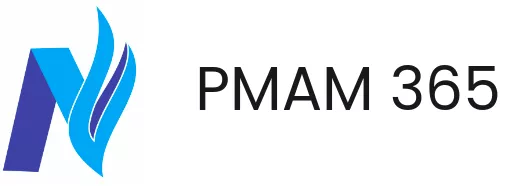Wholesale & Retail

Business?
1. Point-of-Sale (POS) System: A POS system allows retailers to process customer payments, track sales and inventory, and analyze customer data.
2. Inventory Management Software: This software helps retailers manage their inventory, including tracking stock levels, setting re-order points, and optimizing shelf space utilization.
3. Accounting Software: This software enables retailers to process financial transactions, track expenses, and generate financial reports.
4. Customer Relationship Management (CRM) Software: This software helps retailers build relationships with their customers by managing customer data, tracking customer interactions, and automating marketing activities.
5. Business Intelligence Software: This software provides retailers with real-time insights into their operations, helping them make decisions based on data-driven insights.
6. Warehouse Management System (WMS): This software enables retailers to optimize warehouse operations, including order fulfillment, shipping, and receiving.
7. eCommerce Platforms: These platforms enable retailers to sell their products online, providing customers with a convenient and secure shopping experience.
Trade
1. Point of Sale (POS) System: A POS system is used to manage sales, track inventory, and process payments.
2. Retail Management System (RMS): An RMS is used to track customer data, manage pricing, and analyze customer purchase history.
3. Supply Chain Management (SCM) Software: SCM software is used to coordinate and optimize the supply chain, including ordering, warehousing, and delivery.
4. Inventory Management System (IMS): An IMS is used to track inventory levels, manage stock locations, and oversee inventory operations.
5. Data Analytics: Data analytics is used to track sales patterns and customer trends, analyze customer behavior, and assess market performance.
6. Commerce Platforms: Commerce platforms are used to create and manage online stores, process payments, and handle customer service.
7. Business Intelligence (BI) Software: BI software is used to gather and analyze business data, and provide insights on customer segments, purchasing behavior, and revenue trends.
Business
1. POS System: A point of sale (POS) system allows retailers to quickly and accurately record sales transactions and keep track of customer purchases.
2. Inventory Management Software: Inventory management software helps businesses keep track of their stock levels, manage orders, and monitor inventory in real time.
3. CRM Software: Customer relationship management (CRM) software helps retailers to build relationships with customers and understand their needs.
4. E-Commerce Platforms: E-commerce platforms allow businesses to create online stores to reach customers anywhere in the world.
5. Accounting Software: Accounting software helps retailers keep track of their finances, manage payments, and generate reports.
6. Business Intelligence Tools: Business intelligence tools help businesses gain insights into their customers, operations, and markets.
7. Warehouse Management System: A warehouse management system helps businesses automate their inventory management, order fulfillment, and shipping processes.
8. Mobile Payment Solutions: Mobile payment solutions enable customers to make purchases in-store or online using their mobile devices.
?
1. Point of Sale (POS) System: This is a must-have for any wholesale or retail business. POS systems are used to process payments, track inventory, manage customer information, and generate reports.
2. Warehouse Management System (WMS): This IT solution helps manage warehouse operations such as inventory tracking, order processing, and shipping.
3. Enterprise Resource Planning (ERP) System: This is a comprehensive IT solution that helps streamline and automate the various operational processes of a business such as inventory management, financial management, and customer relationship management.
4. Customer Relationship Management (CRM) System: A CRM system helps businesses track and manage customer data, sales activities, and other important customer information.
5. Business Intelligence (BI) System: This IT solution helps businesses make better decisions by delivering real-time data insights.
6. Analytics Solution: Analytics solutions enable businesses to analyze their data and gain insights on customer behavior.
7. E-commerce Platform: An e-commerce platform allows businesses to sell their products and services online.
Business
1. Point of Sale (POS) System: POS systems are important for tracking inventory and sales, managing customers, and processing payments.
2. Inventory Management System: Inventory management systems help you keep track of all inventory, monitor stock levels, and place orders when items need to be restocked.
3. Accounting Software: Accounting software helps you manage your finances, track expenses, and generate financial reports.
4. eCommerce Platform: An eCommerce platform is essential for retailers who want to offer an online store.
5. Customer Relationship Management (CRM) System: CRM systems help you keep track of customer data, automate marketing activities, and track the customer journey.
6. Payment Processing System: Payment processing systems allow customers to make fast and secure payments online.
7. Business Intelligence Software: Business intelligence software helps you make data-driven decisions by providing real-time insights into customer behaviors, inventory levels, and other important data.

